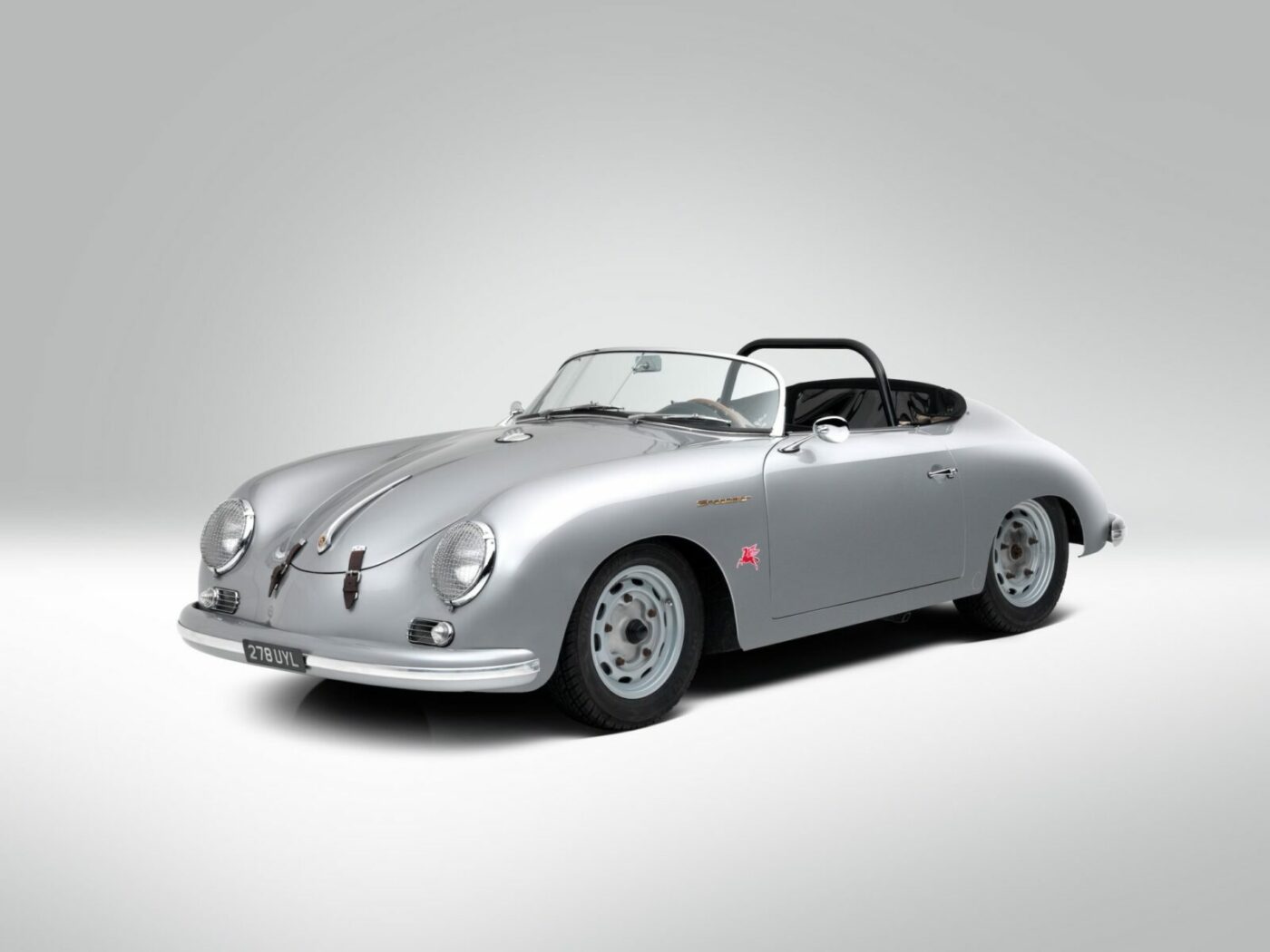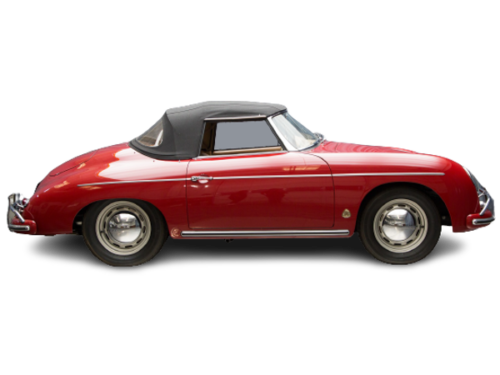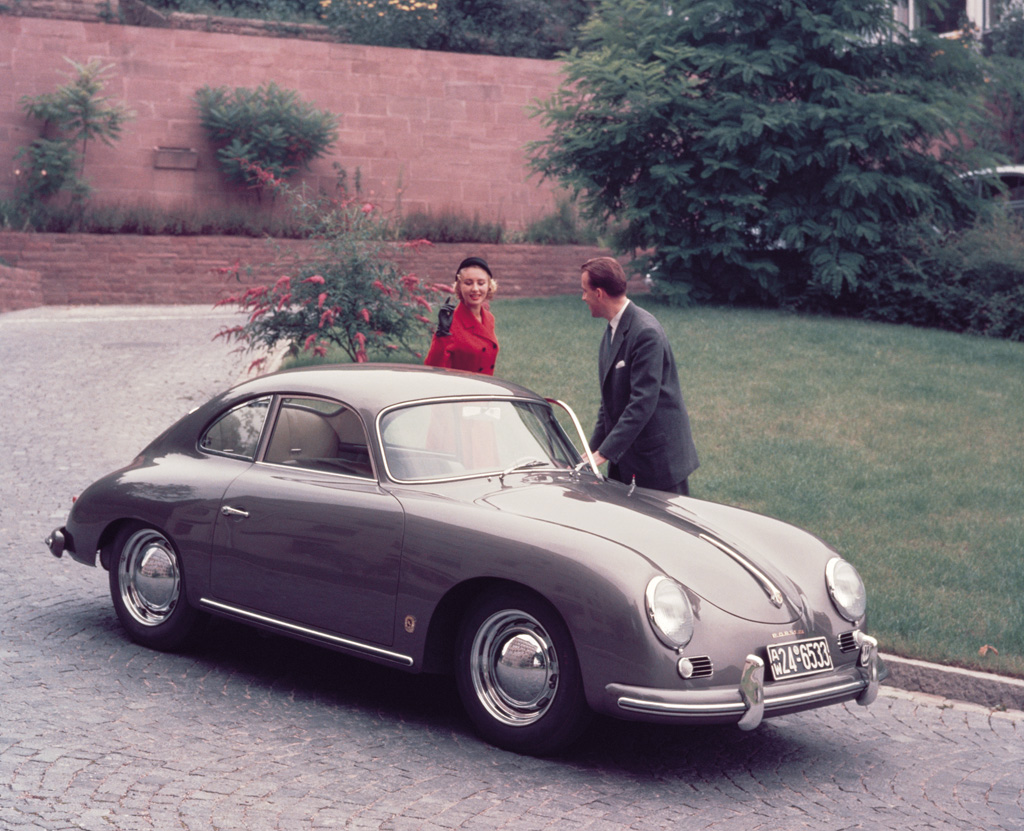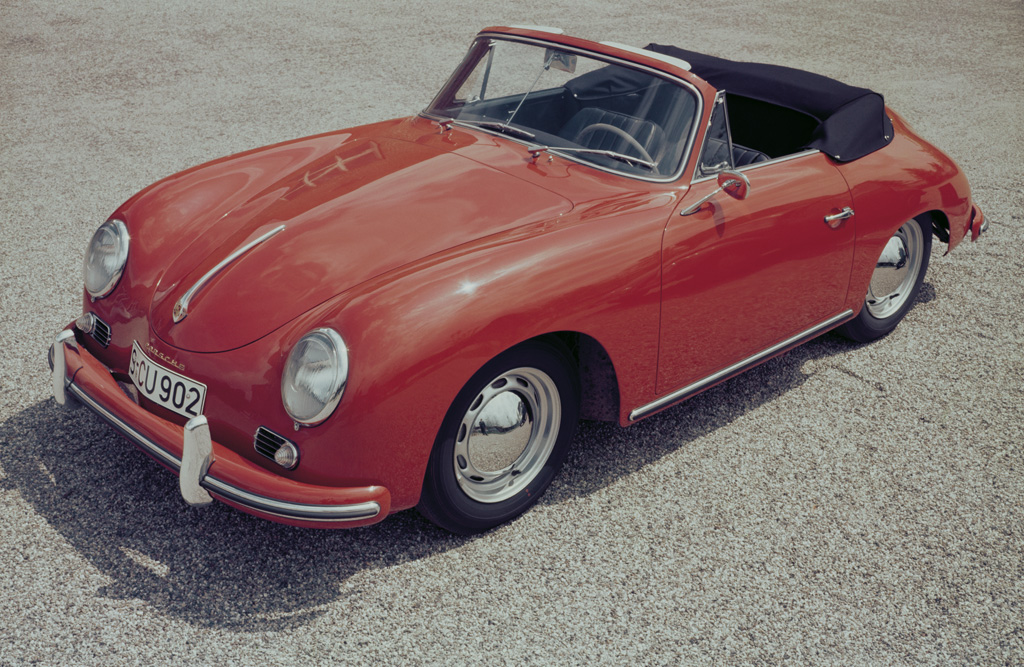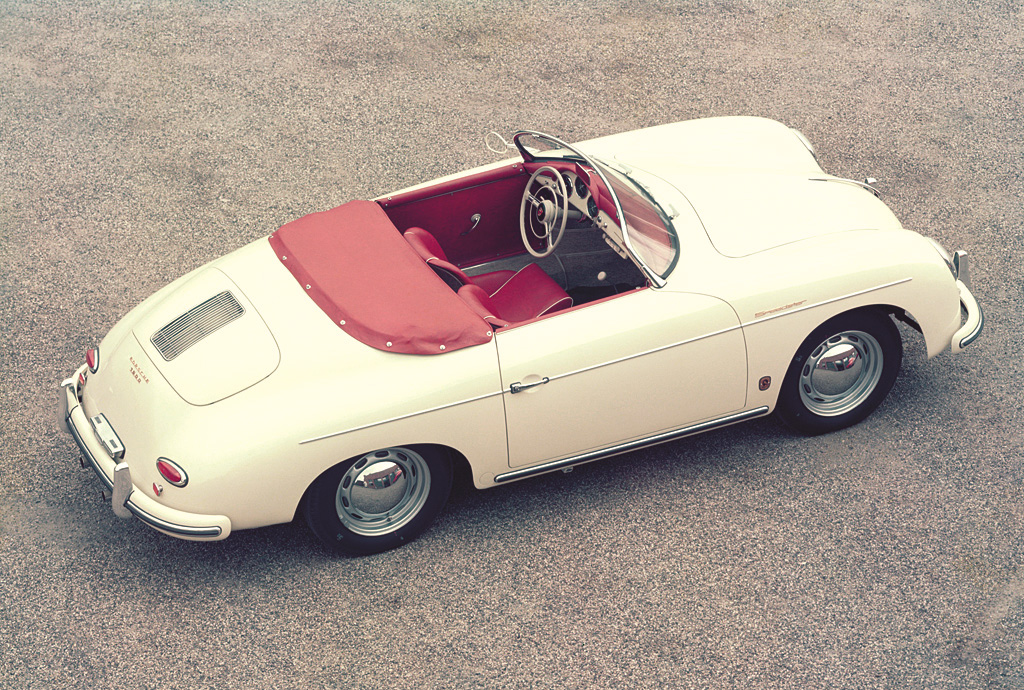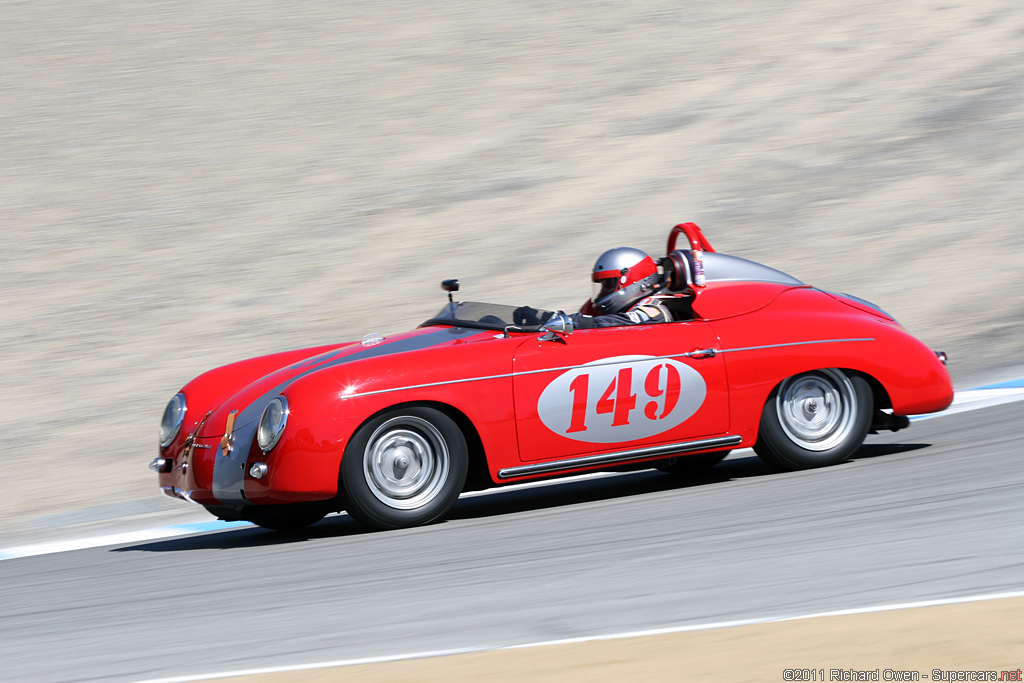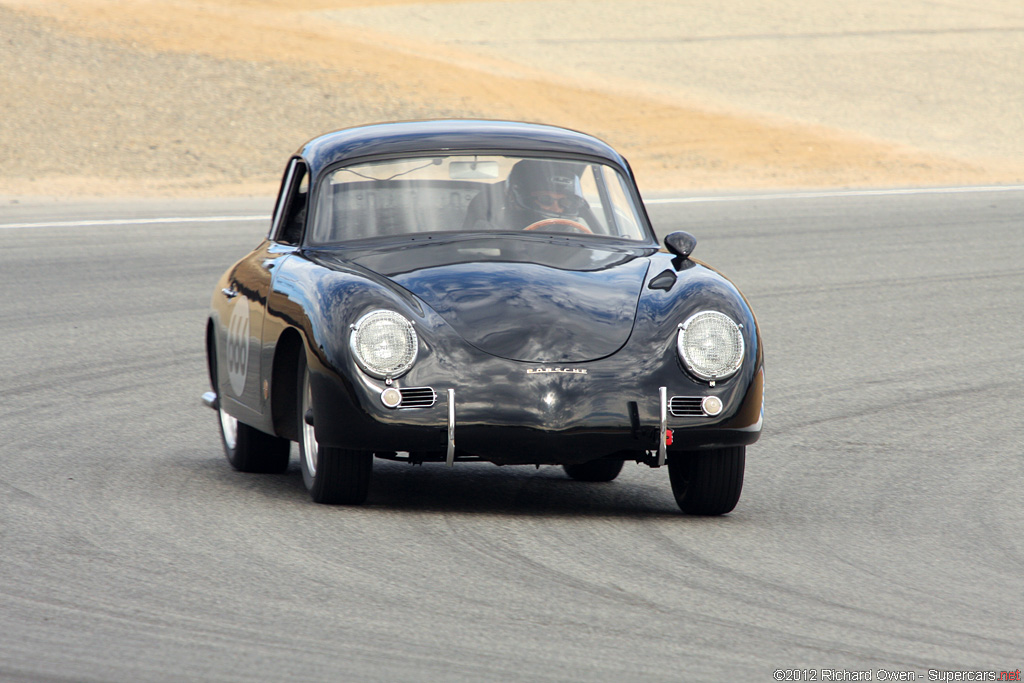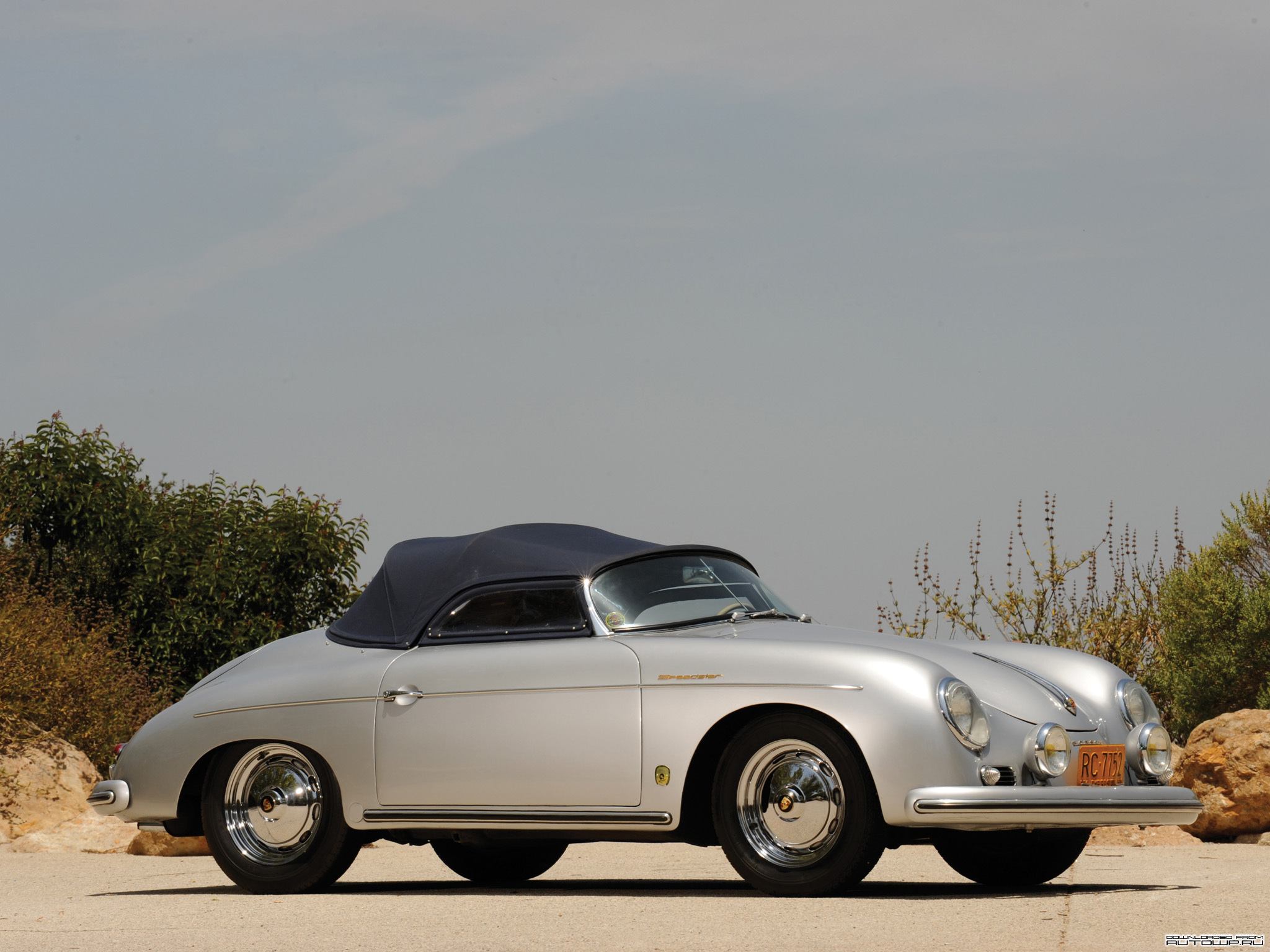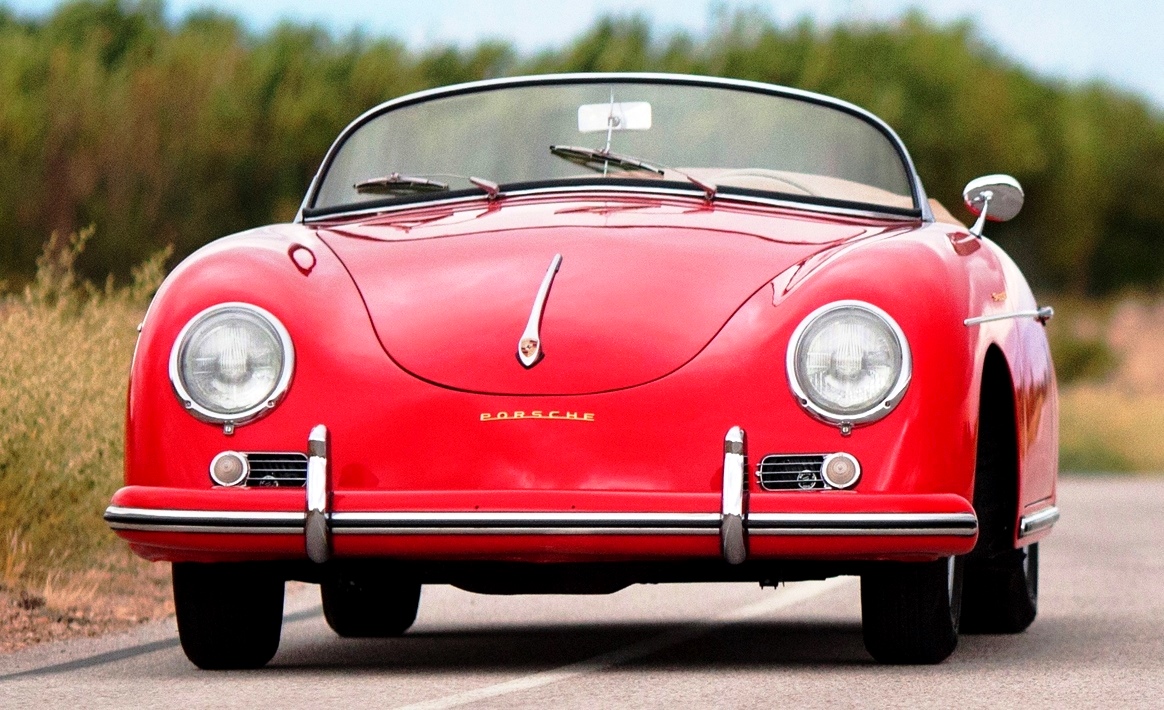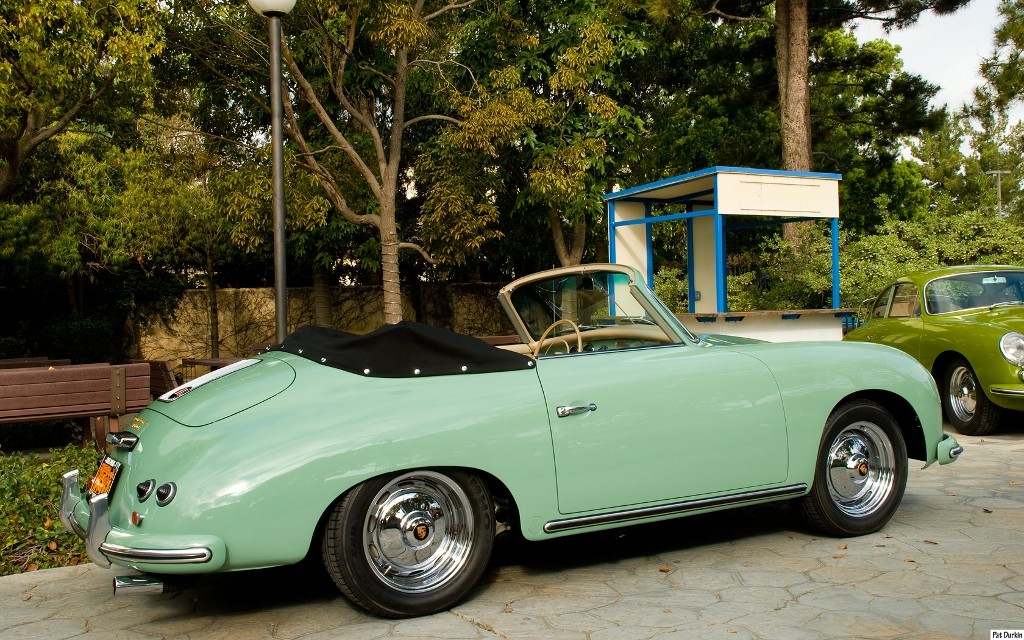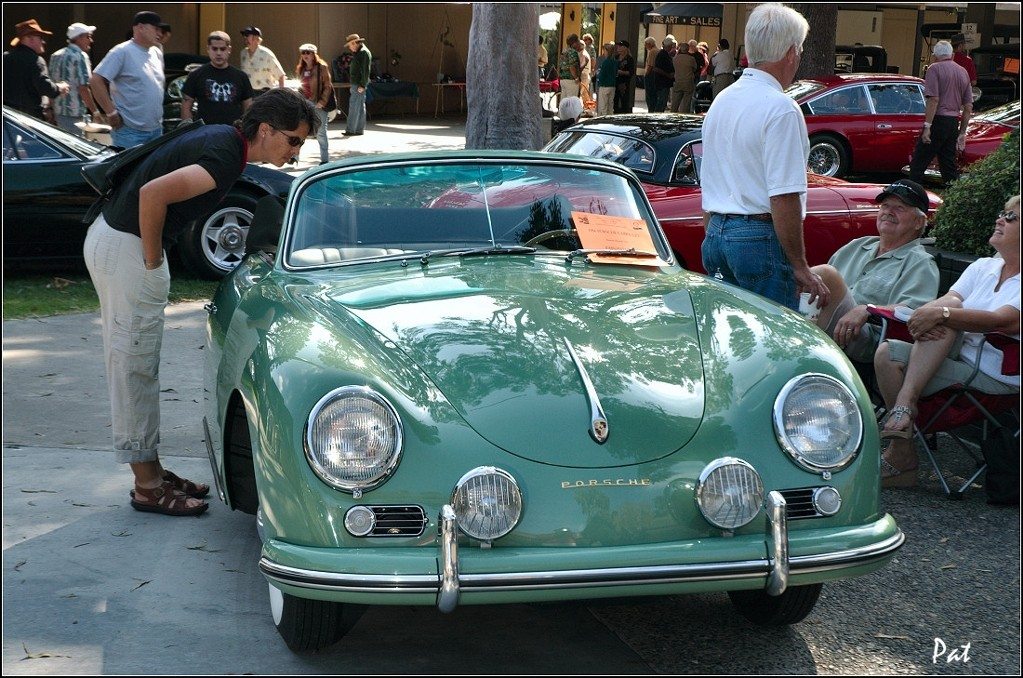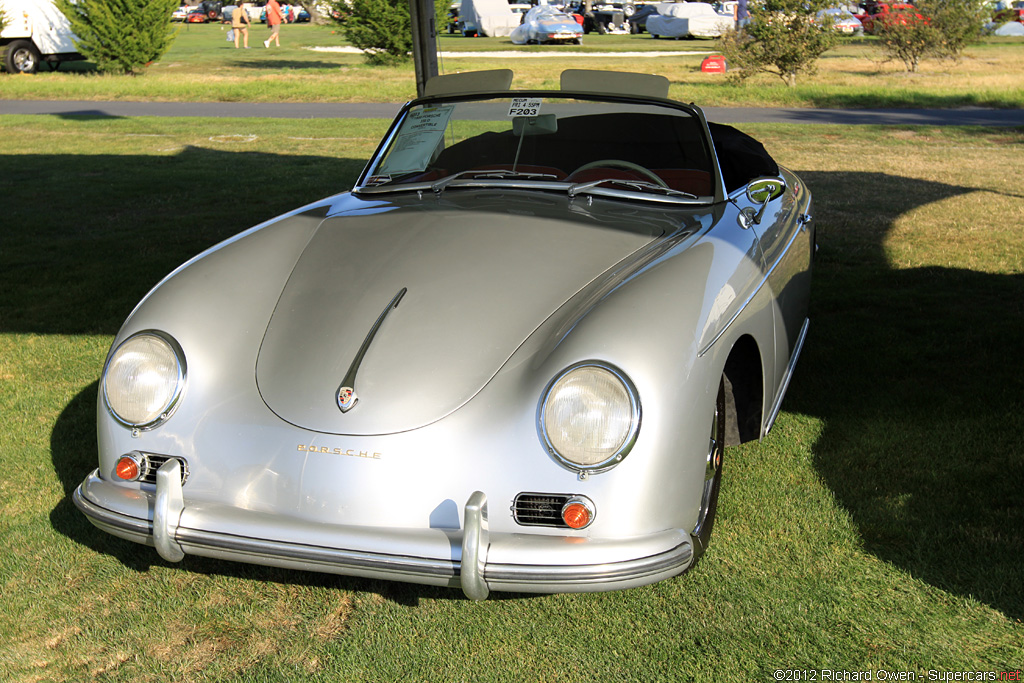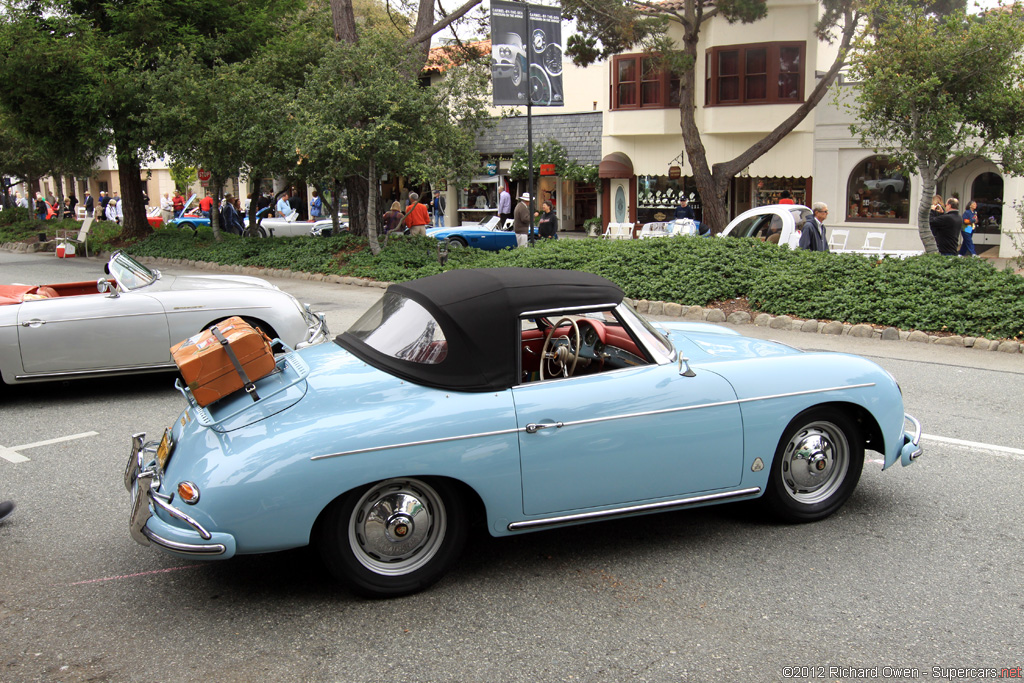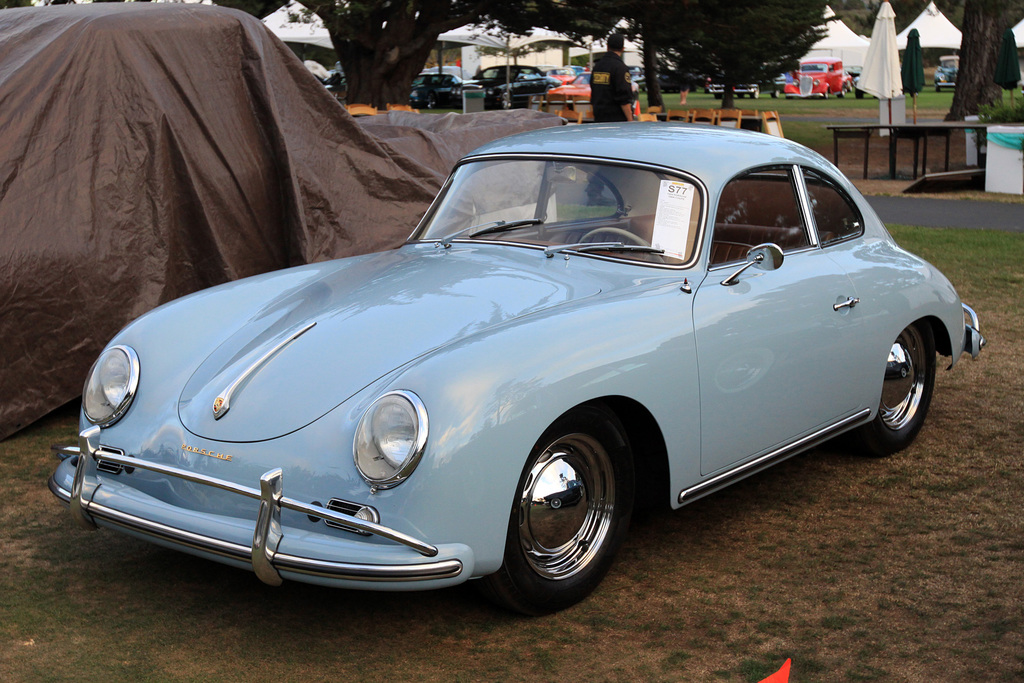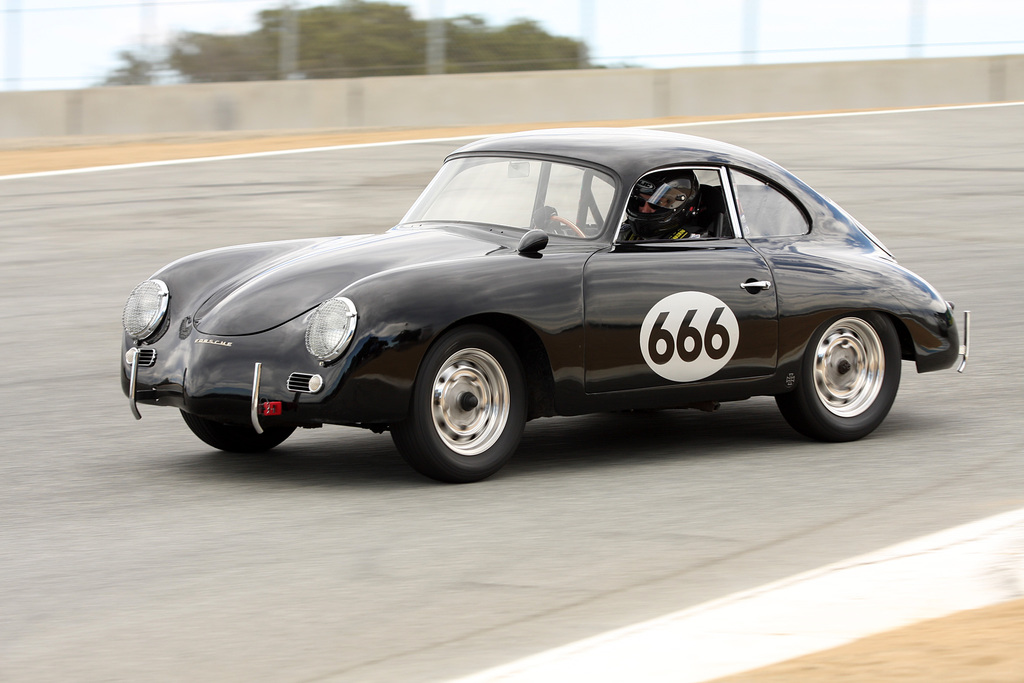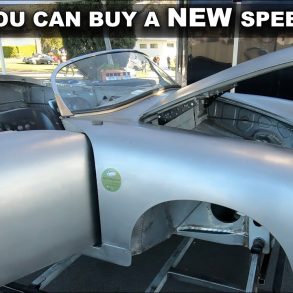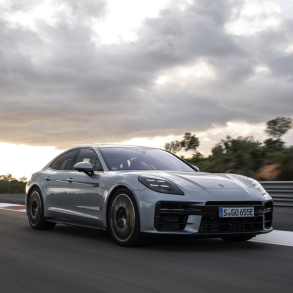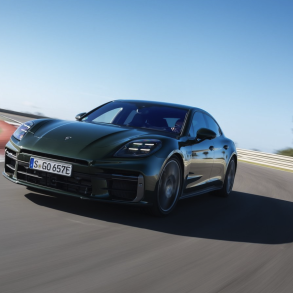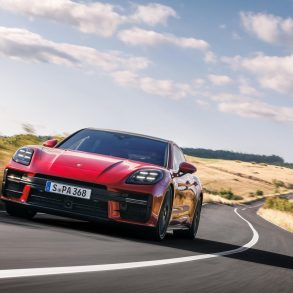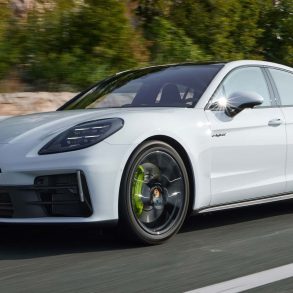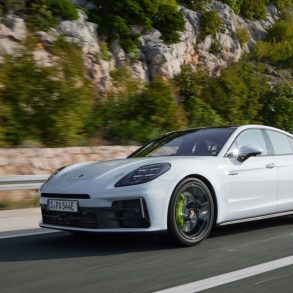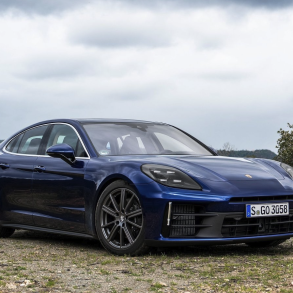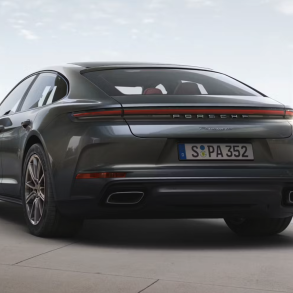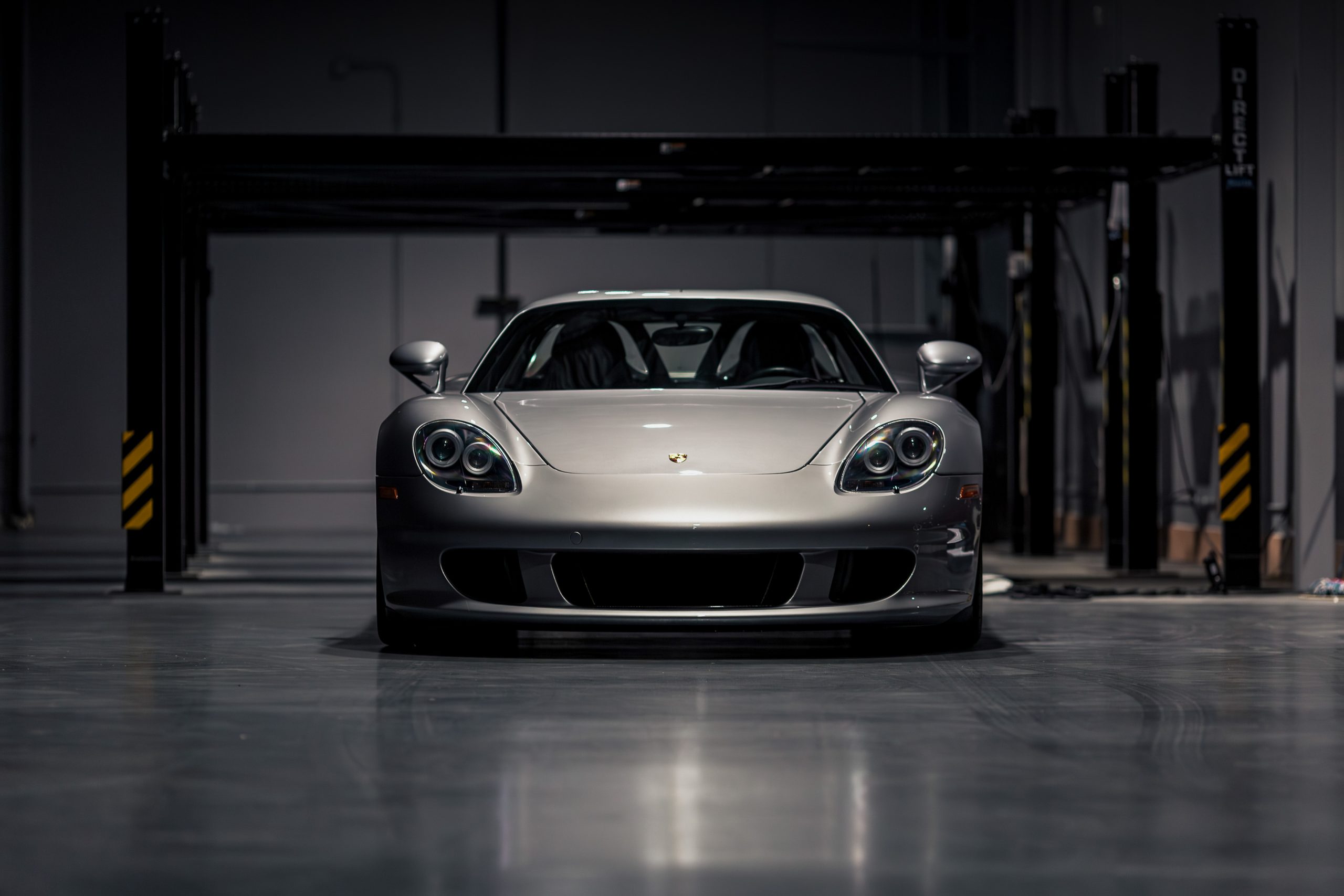1956 – 1959 Porsche 356A/1600 Super – Ultimate Guide
Despite looking outwardly similar to the preceding models, Porsche thoroughly updated their 356 line in 1956 and called their new model the 356A. At the core, this included a larger 1600 cc engine, but also a curved-glass windshield and a thoroughly revised suspension. At the 1955 Frankfurt Motor Show in September of 1955, Porsche released the 356A/1600 to the world with cabriolet, coupe and speedster bodies from Reutter. These were updated to better suit the improved gasoline and tire technologies of the period. With the 356A came a larger 1582 cc engine that had higher compression to take advantage of the available higher octane fuels. A Type 616/2 Super engine was offered as an option with raised power.
Extensive testing by the experimental department known as Versuchsabteilung resulted in numerous suspension and drive line mounting changes before the final 356A specification was decided. They softened the springs by removing leaves from the torsion cars and fitted stiffer dampers. This was done to take advantage of a more modern tire technology which allowed for a smaller-diameter 15-inch tire and a wider tread with reduced air pressures.
From the outside, the 356A kept to the Porsche mantra of stepwise evolution. The new model was outwardly identical to the previous version except for the wider tires, a small rub-strip below the doors, a fully-curved front window and enamel paint replacing lacquer previously used.
Inside, Porsche fitted an all-new, flat-face dashboard that was sculpted around the new curved windshield. It included a padded-top, locking glovebox and a provision for a modern radio. Other interior appointments included a headlight flasher, automatic interior lighting, self-cancelling signal switches and, most importantly, a lower floor. Popular options were a steering-wheel lock and a clock.
At the 1957 Frankfurt Motor Show Porsche released the T2 body style with exhaust routing through the rear bumper over-riders. More importantly, the T2 cars stopped using the roller-bearing crankshafts and the Hirth crankshaft in the Super models. Other changes included changing the carburation from Solex to Zenith 32 NDIX. By 1959 the 356A was replaced outright by the 356B.
Porsche 356A/1600 Coupe (1956 – 1959)
The Porsche 356 A Coupe appeared in late 1955 and continued to be the most popular body style of the 356 A line-up. Almost 6,000 T1 Coupes were produced, practically doubling the amount of 356 A Cabriolet and Speedsters offered during the same time span. After the T2 changes were made to the 356 A, about 7,200 Coupe cars were produced, a difference close to 3,000 more than Cabriolet, Speedster, and Convertible D’s combined. In 1959, the 356 A Coupe was replaced by the Porsche 356 B T5 Coupe.
Porsche 356A/1600 Cabriolet (1956 – 1959)
The Porsche 356 A Cabriolet body style continued as the main Convertible variant of the 356 A in late 1955. Rarer than the Speedster for the T1 cars (1,000 cars produced vs. 2,400 Speedsters), the Cabriolet had some features that made it more a convertible tourer than a low-cost sports-oriented vehicle as was the Speedster. Some of these features included wider and more comfortable seats (instead of the sport bucket-seats), a fixed, taller windshield that made part of the body (instead of a smaller, removable windshield), and roll-up glass windows (instead of side-curtains).
Engine choices mimicked those that were available with the Coupe, with 1300, 1300S, 1600, and 1600S options(the 356 A Carrera engine was also available in the cabriolet body style). In 1957, the T2 body change came mid-year and the Cabriolet featured a modified rear cowling that allowed it to accept a new optional hardtop. Wing windows were also added to the Cabriolet. For this evolution from the T1 cars, the Cabriolet production exceeded that of the Speedster (2,400 vs. 1.300 T2 Speedsters). Total production for 356 A Cabriolets peaked at 3,367 when it was replaced with the Porsche 356 B Cabriolet in late 1959.
Porsche 356A/1600 Speedster (1956 – 1958)
After its introduction in late 1954, the Porsche 356 A Speedster continued life in the 356 A generation as a stripped-down, low-cost, sports-oriented, convertible Porsche 356. It had a cut-down windshield that could easily be removed, a lightweight removable top, and side curtains instead of roll-up windows featured in the 356 A Cabriolet. It could be had with any of the engine options offered for the 356 A Generation (a limited number were made with the Carrera Engine). Popular in the United States for use in racing and sports car events, the Speedster became possibly the most iconic version of the 356. Total production is estimated at 3,944 cars between 1955 and mid-1959 when it was replaced by the Porsche 356 A Convertible D.
Porsche 356A/1600 Convertible D (1959)
Produced in 1959 only, the Porsche 356 Convertible D was the replacement for the 356 A Speedster. In many ways this reflected Porsches desire to make more expensive and premium models. As a result, the $3,695 Convertible was much more expensive than the Speedster it replaced. As such the new car featured roll-up windows for the first time, a more robust hardtop and a higher windshield for more headroom. Porsche retained the chrome-ringed windshield trim which was iconic of the Speedster. Inside Porsche retained the Speedster dashboard, but fitted more luxurious seats and door panels with integrated pockets. Drauz at Heilbronn, Germany was responsible for production of the bodies which explains the Convertible D moniker. Major differences were the addition of roll up side windows, a better convertible top, and a slightly taller windshield, though it was still easily removable. Total production was 1,330 cars. The “D” was a reference to the coach builder Drauz. It was replaced by the Porsche 356 B Roadster in 1960.
Production
356 A production ended in September 1959 when the 356 B was introduced. By this time, 12,161 T-2s had been completed. Of these, 7225 were Coupes, 2475 were Cabriolets, 1131 were Speedsters and 1330 were Convertible Ds. This took total 356 A production to 20,525 units.
Videos & Reviews
Pictures


